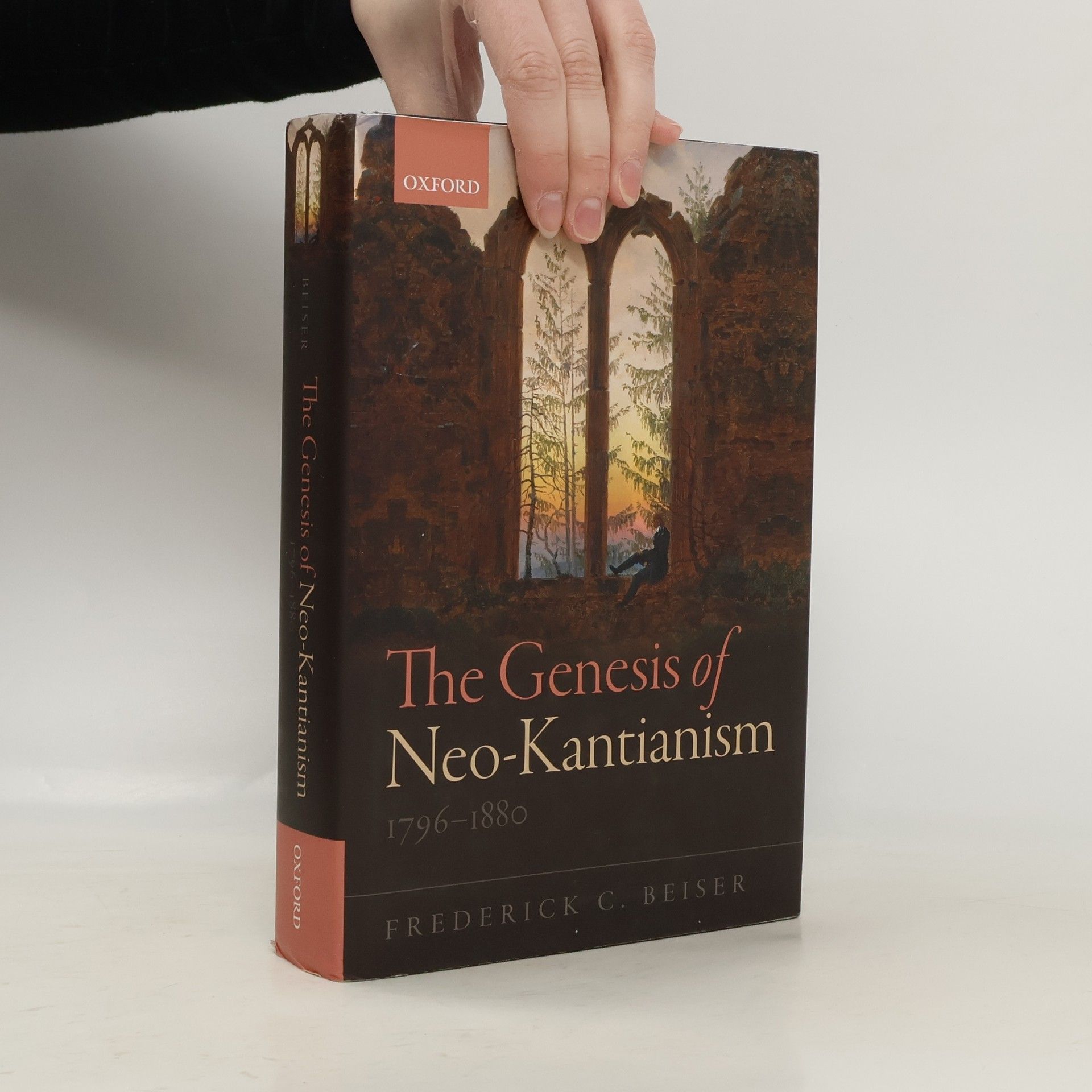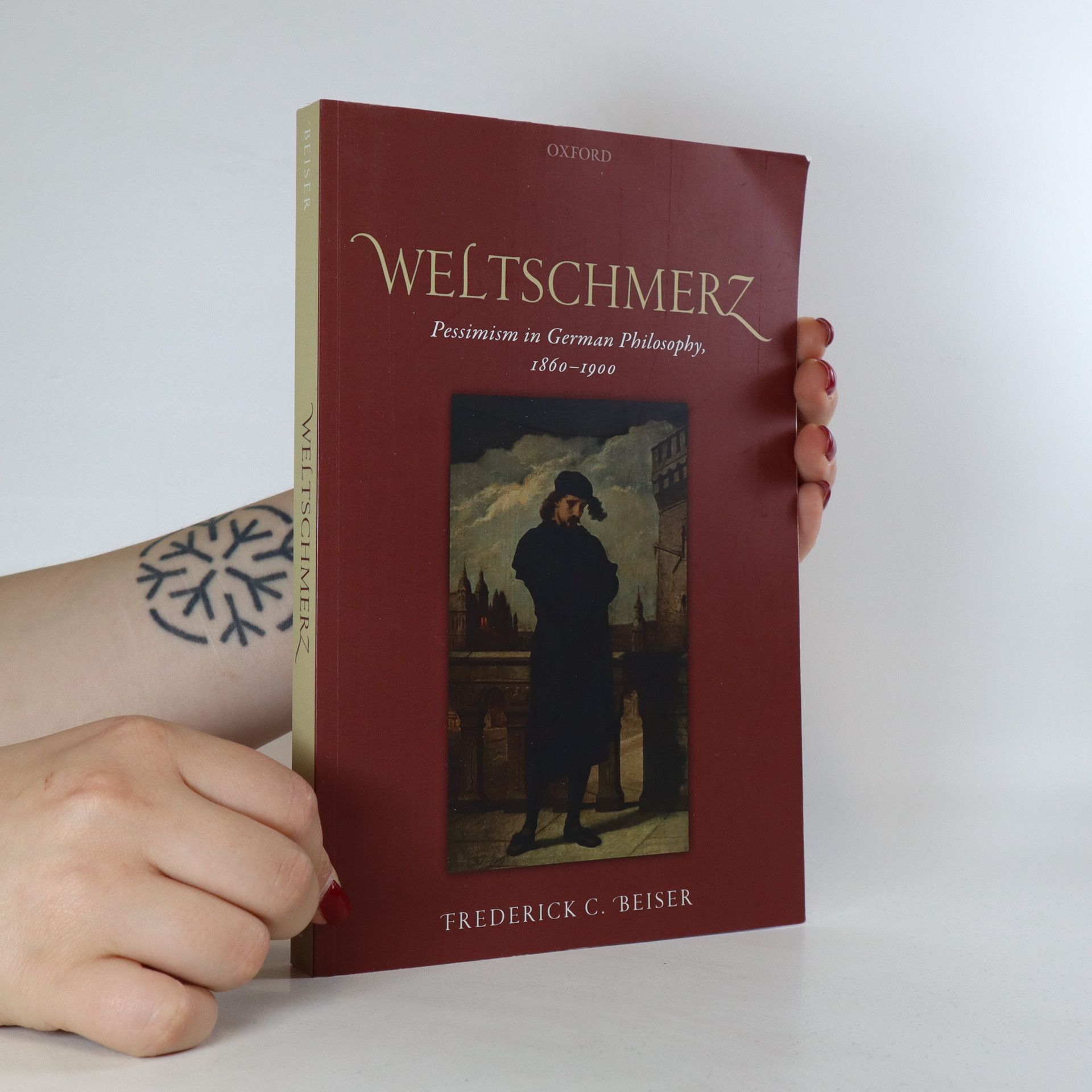In this introduction, Beiser covers every major aspect of Hegel's thought. Placing him in the historical context of nineteenth century Germany, the author clarifies the insights and originality of Hegel's philosophy.
Frederick C. Beiser Livres
Frederick C. Beiser est un éminent spécialiste de l'Idéalisme allemand, se concentrant sur le destin de la raison dans la pensée allemande de Kant à Fichte. Son travail reconstruit le contexte intellectuel et les figures souvent négligées de cette époque, révélant la complexité et la richesse de la tradition philosophique. Beiser adopte une approche narrative, explorant les débats cruciaux qui ont façonné ce mouvement. Ses écrits influents révisent et approfondissent de manière critique la compréhension contemporaine de l'Idéalisme allemand.



Weltschmerz. Pessimism in German philosophy, 1860-1900
- 320pages
- 12 heures de lecture
Weltschmerz is a study of the pessimism that dominated German philosophy in the second half of the nineteenth century. Pessimism was essentially the theory that life is not worth living. This theory was introduced into German philosophy by Schopenhauer, whose philosophy became very fashionable in the 1860s. Frederick C. Beiser examines the intense and long controversy that arose from Schopenhauer's pessimism, which changed the agenda of philosophy in Germany away from the logic of the sciences and toward an examination of the value of life. He examines the major defenders of pessimism (Philipp Mainlander, Eduard von Hartmann and Julius Bahnsen) and its chief critics, especially Eugen Duhring and the neo-Kantians. The pessimism dispute of the second half of the century has been largely ignored in secondary literature and this book is a first attempt since the 1880s to re-examine it and to analyze the important philosophical issues raised by it. The dispute concerned the most fundamental philosophical issue of them all: whether life is worth living.
The Genesis of Neo-Kantianism, 1796-1880
- 480pages
- 17 heures de lecture
Neo-Kantianism was an important movement in German philosophy of the late 19th century: Frederick Beiser traces its development back to the late 18th century, and explains its rise as a response to three major developments in German culture: the collapse of speculative idealism; the materialism controversy; and the identity crisis of philosophy.